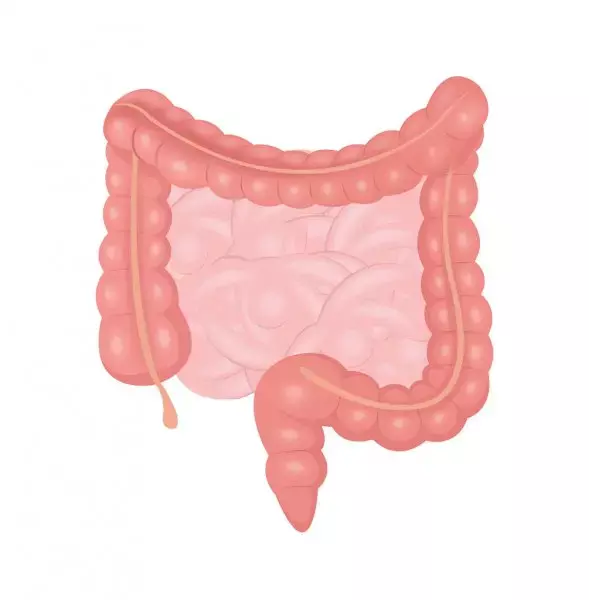- Home
- Medical news & Guidelines
- Anesthesiology
- Cardiology and CTVS
- Critical Care
- Dentistry
- Dermatology
- Diabetes and Endocrinology
- ENT
- Gastroenterology
- Medicine
- Nephrology
- Neurology
- Obstretics-Gynaecology
- Oncology
- Ophthalmology
- Orthopaedics
- Pediatrics-Neonatology
- Psychiatry
- Pulmonology
- Radiology
- Surgery
- Urology
- Laboratory Medicine
- Diet
- Nursing
- Paramedical
- Physiotherapy
- Health news
- Fact Check
- Bone Health Fact Check
- Brain Health Fact Check
- Cancer Related Fact Check
- Child Care Fact Check
- Dental and oral health fact check
- Diabetes and metabolic health fact check
- Diet and Nutrition Fact Check
- Eye and ENT Care Fact Check
- Fitness fact check
- Gut health fact check
- Heart health fact check
- Kidney health fact check
- Medical education fact check
- Men's health fact check
- Respiratory fact check
- Skin and hair care fact check
- Vaccine and Immunization fact check
- Women's health fact check
- AYUSH
- State News
- Andaman and Nicobar Islands
- Andhra Pradesh
- Arunachal Pradesh
- Assam
- Bihar
- Chandigarh
- Chattisgarh
- Dadra and Nagar Haveli
- Daman and Diu
- Delhi
- Goa
- Gujarat
- Haryana
- Himachal Pradesh
- Jammu & Kashmir
- Jharkhand
- Karnataka
- Kerala
- Ladakh
- Lakshadweep
- Madhya Pradesh
- Maharashtra
- Manipur
- Meghalaya
- Mizoram
- Nagaland
- Odisha
- Puducherry
- Punjab
- Rajasthan
- Sikkim
- Tamil Nadu
- Telangana
- Tripura
- Uttar Pradesh
- Uttrakhand
- West Bengal
- Medical Education
- Industry
Management of colonic volvulus and acute colonic pseudo-obstruction- ASCRS guidelines

USA: The American Society of Colon & Rectal Surgeons (ASCRS) has released an updated clinical practice guideline for the management of colonic volvulus and acute colonic pseudo-obstruction (ACPO). The guideline, published in the journal Diseases of the Colon & Rectum (DC&R), is developed by the ASCRS Clinical Practice Guidelines Committee.
Colonic volvulus (twisting of the large intestine) is a potentially life-threatening cause of large-bowel obstruction. ACPO can mimic the symptoms of large bowel obstruction.
"These guidelines reflect the best available evidence on current practice for specialist management of colonic volvulus and ACPO," comments Daniel L. Feingold, MD, of Rutgers University, New Brunswick, N.J., on behalf of the Committee.
Updated recommendations for colonic volvulus and ACPO
Colonic volvulus occurs when part of the colon becomes twisted, causing obstruction and reduced blood flow, with the potential for intestinal damage and death. Although colonic volvulus is relatively uncommon in the United States, colonic obstruction of any cause is a medical emergency requiring immediate evaluation and treatment. Acute colonic pseudo-obstruction is a rare condition that may cause symptoms of large-bowel obstruction without mechanical blockage, requiring different treatment.
The updated 2021 guidelines consist of 15 recommendations related to the diagnosis and treatment of colonic volvulus, based on 125 research reports. The new document reflects the latest research evidence since publication of the previous guidelines in 2016. Recommendations for colonic volvulus address:
Initial evaluation. When first evaluated, about one-fourth to one-third of patients have symptoms of infection or shock related to loss of intestinal blood flow (ischemia) or perforation.
Imaging studies. Radiographs or CT scans can detect the presence and location of colonic volvulus. Early detection may enable treatment before irreversible intestinal injury develops.
Sigmoid volvulus. Management depends on where the volvulus is located. For volvulus in the sigmoid colon (near the end of the large bowel), colonoscopy can be performed to assess and sometimes relieve the obstruction (detorsion/decompression). If the bowel cannot be untwisted, or if intestinal damage or perforation is present, urgent surgery is needed. After successful detorsion, surgery may be recommended to prevent the problem from recurring.
Cecal volvulus. If volvulus is located in the cecum (at the beginning of the large bowel), surgical treatment is recommended. The risks for intestinal damage or tissue death are higher in patients with cecal volvulus, although more recent studies suggest that outcomes have improved.
The remaining recommendations address management of ACPO: a less-common condition with symptoms similar to those of large-bowel obstruction, despite the absence of mechanical blockage. The guidelines focus on diagnostic steps to exclude the presence of colonic volvulus, cancer, or other causes of obstruction. Treatment starts with supportive care to eliminate or correct other medical conditions that can predispose to ACPO.
Although most of the guideline recommendations are graded as "strong," many are based on "low-quality" evidence – highlighting remaining gaps in the available research on colonic volvulus and ACPO. Dr. Feingold adds, "We hope these recommendations will provide the basis for a scientifically informed approach to management of these serious conditions, always informed by the physician's judgment and tailored to the individual patient's situation."
Reference:
"The American Society of Colon and Rectal Surgeons Clinical Practice Guidelines for the Management of Colonic Volvulus and Acute Colonic Pseudo-Obstruction," is published in the journal Diseases of the Colon & Rectum.
DOI: 10.1097/DCR.0000000000002159
Dr Kamal Kant Kohli-MBBS, DTCD- a chest specialist with more than 30 years of practice and a flair for writing clinical articles, Dr Kamal Kant Kohli joined Medical Dialogues as a Chief Editor of Medical News. Besides writing articles, as an editor, he proofreads and verifies all the medical content published on Medical Dialogues including those coming from journals, studies,medical conferences,guidelines etc. Email: drkohli@medicaldialogues.in. Contact no. 011-43720751


